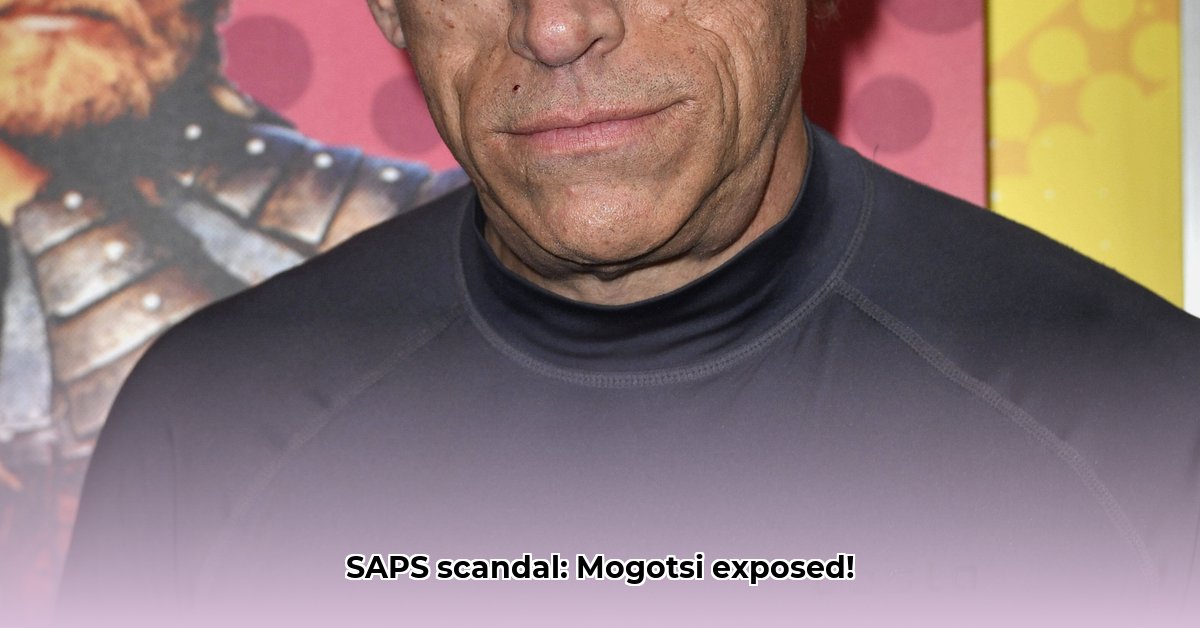
At the Centre of a SAPS Scandal
Brian Mogotsi, a close associate of Minister Senzo Mchunu, finds himself at the epicentre of a major corruption scandal engulfing the South African Police Service (SAPS). Allegations of a R100,000 payment from Vusimuzi “Cat” Matlala, a figure allegedly linked to organised crime, to Mogotsi have sparked widespread concern and calls for a thorough investigation. KwaZulu-Natal Premier Thamsanqa Ntuli has publicly demanded a full investigation, highlighting the gravity of the situation. However, President Ramaphosa's call for restraint in public discussion has added an element of uncertainty, raising questions about transparency and potential interference. Mogotsi's silence, citing the President's request despite not being a police officer himself, further fuels speculation.
Unraveling a Complex Web of Allegations
The allegations surrounding Mogotsi are complex and interwoven. Reports suggest links to a potentially corrupt tender process, and even an alleged assassination attempt adds further layers of intrigue. The lack of complete transparency hinders a full understanding of Mogotsi's role and the extent of the corruption within SAPS. Crucially, the President's call for the matter to remain outside the public domain raises serious questions about potential motives, and whether they undermine the investigation's integrity. How can we ensure a truly independent and transparent investigation under these circumstances?
The Unanswered Questions and Conflicting Narratives
While the existence of corruption within the SAPS is largely acknowledged, the specifics concerning Mogotsi's involvement remain unclear. Details surrounding his alleged links to Matlala, the exact nature of the R100,000 payment, and the alleged tender irregularities require further investigation. The conflicting narratives surrounding President Ramaphosa's request and its implications for transparency are equally critical to unravel. What definitive evidence connects Mogotsi to these allegations, and can we expect transparency in the forthcoming investigation?
Who's Involved and What Should They Do?
Several key actors have crucial roles to play in addressing this crisis:
An Independent Investigative Body: An impartial and transparent investigation, free from political influence, is paramount. This requires comprehensive investigation of all allegations, regardless of the individuals involved. This investigation should ultimately lead to a series of preventative measures to curb future corruption within SAPS.
President Ramaphosa's Responsibility: The President must ensure a fully transparent process and guarantee accountability. His call for restraint should not be interpreted as an attempt to obstruct justice. Clear public pronouncements on commitment to transparency and accountability are essential to rebuilding public trust.
Parliamentary Oversight: Parliament must hold public hearings to examine the evidence, identify systemic weaknesses within SAPS, and implement stronger oversight mechanisms to prevent future recurrences. This requires a robust commitment to transparency and accountability.
SAPS's Cooperation: The SAPS must cooperate fully with any investigation and must demonstrate swift disciplinary action against any implicated officers. This needs to build public confidence in SAPS' commitment to transparency and accountability.
Public Engagement: Public vigilance, engagement, and demand for transparency are crucial to ensuring that the investigation proceeds fairly and that those responsible are held accountable. Active public participation is vital in holding institutions accountable
Assessing the Risks: Navigating Uncertain Waters
The risks associated with this situation are significant. Obstruction of justice, damage to public trust, further criminal activity, and the possibility of political interference all pose substantial threats. A robust and independent investigation, complete transparency, and decisive action against those found guilty are vital to mitigating these risks. How can these risks be effectively addressed in such a politically charged environment?
Moving Forward: Transparency and Accountability
The Mogotsi case underscores the urgent need for greater transparency and accountability within both the SAPS and the South African government. This crisis demands immediate and comprehensive action. This requires not just an investigation, but decisive systemic reforms and commitment to building public confidence in governmental institutions. Will the investigation lead to meaningful changes and a restoration of public faith in the system? Only time will tell.
Key Takeaways:
- A major corruption scandal is shaking the foundations of the South African Police Service.
- Allegations against Brian Mogotsi, linked to a controversial R360 million tender, demand a thorough and independent investigation.
- President Ramaphosa’s response will be crucial in navigating this crisis and restoring public trust.
- Systemic reforms within the SAPS are desperately needed to prevent future scandals and rebuild public confidence.
- The transparency and integrity of the investigation are at the heart of this crisis. The outcome will significantly shape South Africa’s political landscape and the fight against corruption.